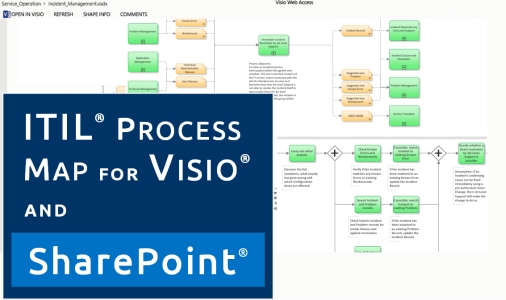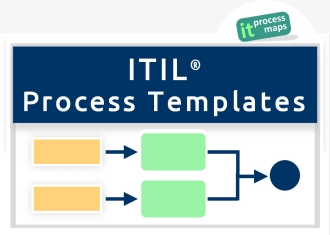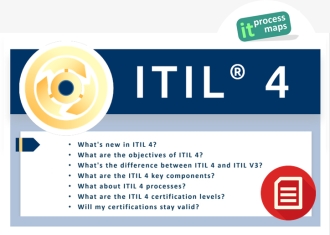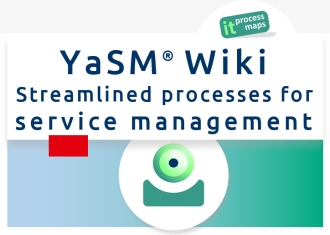ITIL Implementation - Training

| Step 10: ITIL Process Implementation and Training |
Finally, IT staff receives thorough training in order to be able to apply the new processes in practice, and clients or users might need to be informed - in so far as these are affected by the new ITIL processes.
Objectives
- Build-up of knowledge about ITIL
- Training of the employees participating in the new processes in the use of new or changed application systems
- Instruction and information of customers
- Making the new processes a part of everyday working practice
Description
First of all process participants must be made familiar with the new processes. This implementation guide made sure at various points that those participants are involved in the process design early on, so in most cases there should be no need to explain how processes will change.
There might be additional training measures at different levels:
- Background knowledge on ITIL is decisive for the success of the new processes and should be made available to all parties involved; basic ITIL training may take place at the beginning of the project for important key players, so that they are able to convey the ITIL principles to the other project participants.
- Specific members of IT staff will require more intensive training, depending on the ITIL roles they will assume
- After the implementation of a new or changed application system, training measures with regards to its operation may be necessary
- As a supplement, trainings which contribute to the improvement of the IT organization’s public image may be considered ("How do I handle critical clients?")
- Ultimately the clients are also to be informed, for example if a new Service Desk has been established and as a result the procedure for placing Service Requests has changed.
Communicate process changes early and to all parties involved.
- If the process participants learn of the new processes only at this stage, a lack of acceptance will be inevitable. As many employees as possible should therefore be involved in the design of the processes during the earlier project phases.
Prerequisites
- Process overviews (process breakdown)
- Interfaces of the ITIL processes to be introduced
- Detailed process descriptions in the form of ITIL process flows
- Guidelines/ checklists
- Measures (KPIs) for the processes to be introduced
- Definitions of the process outputs
Results/ Deliverables
- Informed IT staff
- Informed clients
Success Factors
- As already stated, all parties concerned should be invited to co-operate and introduce their experiences throughout the project course.
Relevant Views of the ITIL Process Map
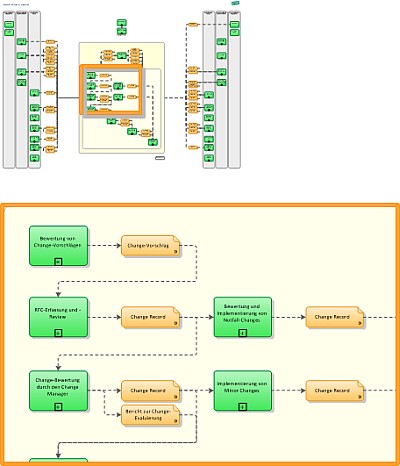
The process overviews of the ITIL Process Map are very helpful in the explanation of the new ITIL processes and the illustration of their interdependencies (see Figure 1).
For detailed information about processes, the detailed process flows and ITIL templates are useful resources.
Sharing your ITIL processes throughout your organization:
In this video we demonstrate how you can use the ITIL process model for Visio in combination with SharePoint® for publishing your ITIL processes.
Watch the video: "The ITIL Process Map for Visio and SharePoint" Duration: 7:11 min.]
→ Back to: ITIL Implementation (main page)
[ Infobox ]
| Link to this page: | https://wiki.en.it-processmaps.com/index.php/ITIL_Implementation_-_Training |
| Languages: | English | Deutsch | español |
| Image: | ITIL process overview (.JPG) |
| Author: | Andrea Kempter, IT Process Maps |
